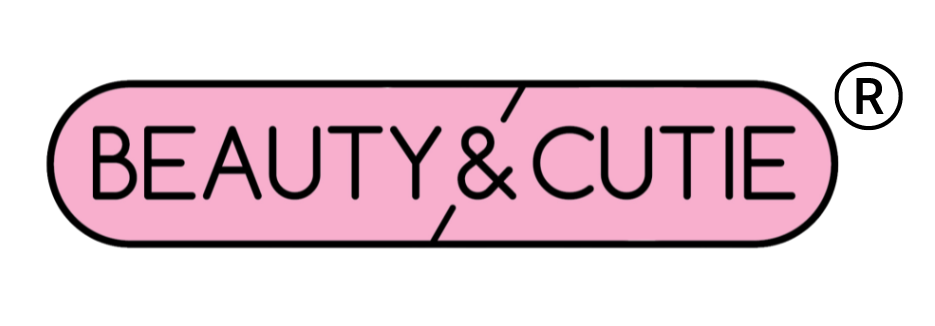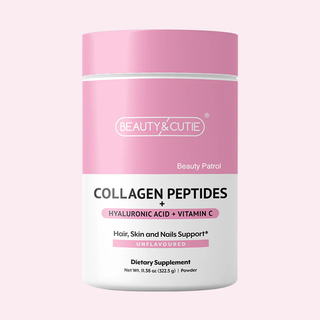As the largest organ in the human body, the skin plays a crucial role in protecting us from external harm. However, it's also vulnerable to damage caused by poor lifestyle choices, including a diet high in certain foods. In fact, what we eat can have a significant impact on our skin's health and appearance. Some foods can lead to inflammation, breakouts, premature aging, and other skin problems. In this article, we'll take a closer look at the worst foods for skin and why you should avoid them.
How Does Food Affect Skin?
Our skin cells require various nutrients to function optimally, such as vitamins A, C, and E, zinc, and selenium. A diet lacking in these nutrients can lead to dry and dull-looking skin, while excessive consumption of certain foods can trigger inflammation and acne breakouts.
Additionally, high glycemic index foods, such as sugar and refined carbohydrates, can cause a spike in insulin levels, leading to an increase in sebum production. Sebum is an oily substance that clogs pores and provides a breeding ground for acne-causing bacteria. In short, our diet can either promote or impede healthy skin function, making it crucial to choose our food wisely.
What Are The Worst Foods For Skin?
- Sugary Drinks: Beverages high in sugar like soda, fruit juices, and energy drinks can cause inflammation and lead to premature aging.
- Fried Foods: Fried and greasy foods are high in trans fats that can damage skin cells and cause inflammation, which can lead to acne and premature aging.
- Alcohol: Alcohol dehydrates the body, leading to dry and dull-looking skin. It also causes inflammation, triggering acne breakouts and premature aging.
- Processed Meats: Processed meats like bacon, sausages, and deli meat contain high levels of sodium and preservatives that can cause inflammation and lead to premature aging.
- Dairy Products: Dairy products like milk, cheese, and butter are high in saturated fats and hormones, which can trigger acne breakouts and inflammation.
- High-Sugar Foods: Foods high in sugar like sugary cereal, ice cream, candy, cakes, and pastries can cause inflammation, leading to acne breakouts and premature aging.
- White Bread and Pasta: Refined carbohydrates like white bread and pasta have a high glycemic index, leading to an increase in sebum production and clogged pores.
- Fast Food: Fast food is often high in sodium, trans fats, and preservatives, causing inflammation and leading to premature aging.
- Spicy Foods: Spicy foods can trigger inflammation and lead to acne breakouts, especially for those with sensitive skin.
To maintain healthy and glowing skin, it is important to avoid or limit the consumption of these foods. Instead, opt for a diet rich in fruits, vegetables, whole grains, and lean proteins. These foods are packed with nutrients that promote healthy skin function and help fight inflammation.
Is White Rice Bad For Skin?
White rice is a refined carbohydrate, meaning it has a high glycemic index. This can lead to an increase in sebum production and clogged pores, potentially causing acne breakouts. However, white rice itself is not necessarily bad for the skin in moderation. It is important to balance your rice consumption with other healthy foods and to choose brown rice or other whole grains when possible, which are higher in fiber and nutrients. Overall, a balanced and varied diet is key to promoting healthy skin function and preventing skin problems.
Is Whey Protein Bad For Skin?
Whey protein is a dairy product that is often consumed as a dietary supplement for muscle building and weight loss. However, it can also be bad for the skin. Whey protein contains hormones and amino acids that can trigger acne breakouts and inflammation. In addition, some whey protein supplements contain added sugars, which can also lead to skin problems.
If you are concerned about the impact of whey protein on your skin, it is recommended to limit your intake or switch to plant-based protein sources like pea protein or soy protein. These alternatives are less likely to cause skin problems and are also better for the environment. As always, it is important to maintain a balanced and varied diet to support healthy skin function and overall well-being.
What Are The Best Foods For Skin?
- Berries: Berries are rich in antioxidants that protect the skin from damage caused by free radicals and promote collagen production, keeping the skin firm and youthful.
- Leafy Greens: Leafy greens like spinach, kale, and broccoli are high in vitamins and minerals that support healthy skin function and prevent inflammation.
- Nuts and Seeds: Nuts and seeds like almonds, walnuts, and chia seeds are high in healthy fats and vitamin E, which help keep the skin hydrated and reduce inflammation.
- Fatty Fish: Fatty fish like salmon, tuna, and sardines are high in omega-3 fatty acids that reduce inflammation and promote healthy skin function.
- Avocado: Avocado is high in healthy fats and vitamin E, which help keep the skin hydrated and nourished. It also contains antioxidants that protect the skin from damage.
- Sweet Potatoes: Sweet potatoes are rich in beta-carotene, which converts to vitamin A in the body. Vitamin A promotes healthy skin function, reduces inflammation, and prevents premature aging.
- Green Tea: Green tea is rich in antioxidants that protect the skin from damage caused by free radicals and promote collagen production, keeping the skin firm and youthful.
- Tomatoes: Tomatoes are high in lycopene, an antioxidant that protects the skin from damage caused by UV radiation and promotes healthy skin function.
- Citrus Fruits: Citrus fruits like oranges, lemons, and grapefruits are high in vitamin C, which is essential for collagen production and helps to brighten and even out skin tone.
- Dark Chocolate: Dark chocolate contains flavonoids that protect the skin from damage and improve skin hydration and elasticity.
By incorporating these skin-boosting foods into your diet, you can promote healthy skin function and protect it from damage caused by free radicals and inflammation. It is important to remember that a balanced and varied diet is key to maintaining healthy skin and that avoiding or limiting the consumption of the worst foods for the skin is just as important as incorporating the best ones. Additionally, drinking plenty of water and getting enough sleep and exercising are also important factors in achieving and maintaining healthy skin.
What Salads Are Best For Healthy Skin?
In addition to incorporating skin-boosting foods into your diet, choosing the right ingredients for your salads can also have a positive impact on your skin health. Leafy greens such as spinach, kale, and arugula are rich in vitamins and minerals that support healthy skin function and help to prevent inflammation. Adding colorful vegetables like bell peppers, carrots, and beets can also provide a range of antioxidants and nutrients that promote healthy skin.
Protein sources such as grilled chicken or tofu can provide essential amino acids that support skin cell growth and repair. Adding healthy fats like avocado or nuts and seeds can help to keep the skin hydrated and nourished. It is also important to choose a healthy dressing, such as olive oil and vinegar, rather than processed dressings that can contain added sugars, unhealthy fats, and preservatives.
By choosing a variety of skin-boosting ingredients for your salads and avoiding processed and unhealthy options, you can support your skin health and overall well-being. Remember that healthy skin starts from within and making small changes to your diet and lifestyle can have a big impact on your skin's appearance and function.
Conclusion
Healthy skin is a reflection of a healthy lifestyle, and what we eat plays a crucial role in maintaining good skin health. Avoiding or limiting the consumption of foods known to be detrimental to skin health, such as fried and processed foods, can prevent premature skin aging and promote healthy skin function. Incorporating skin-boosting foods such as berries, fatty fish, and dark chocolate can provide essential nutrients and antioxidants that protect the skin from damage and keep it hydrated and nourished. Choosing the right ingredients for your salads can also contribute to healthy skin function, including leafy greens, colorful vegetables, and healthy fats.
Final Thoughts
Feeling radiant starts with nourishment, and Beauty and Cutie’s collagen powders are here to help. Our innovative formula delivers essential collagen peptides to strengthen hair, rejuvenate skin, and fortify nails. Regular use promotes healthy cell growth, giving you a head-to-toe glow. Illuminate your natural beauty with Beauty and Cutie!
Sources
- https://fountaingrovemedspa.com/how-diet-affects-your-skin-health
- https://brushonblock.com/blogs/news/117702532-how-sugary-drinks-affect-your-skin
- https://www.gq.com/story/alcohol-is-bad-for-your-skin
- https://www.stryx.com/blogs/skincare/does-spicy-food-cause-acne
- https://www.foodnetwork.com/healthyeats/healthy-tips/2015/08/7-foods-that-are-ruining-your-skin
- https://www.healthline.com/health/benefits-of-green-tea-for-skin
- https://www.heinens.com/stories/the-health-benefits-of-citrus-fruit
- https://www.healthline.com/nutrition/7-health-benefits-dark-chocolate
*These statements have not been evaluated by the Food and Drug Administration. This product is not intended to diagnose, treat, cure or prevent any diseases.


